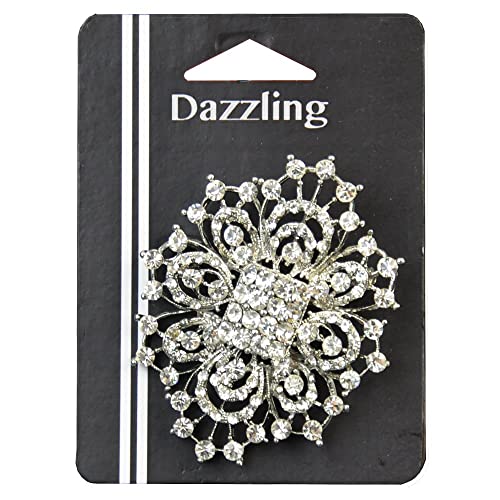
Hey there! Have you ever wondered about the impact of your jewelry choices? Well, today we’re diving into the world of ethical jewelry and how it differs from conventional jewelry. Whether you’re a jewelry enthusiast or simply someone who appreciates beautiful pieces, this information is going to be eye-opening. So, grab a cup of tea, sit back, and let’s explore the fascinating world of ethical jewelry together!
Sparkle with a Clear Conscience: Our Bestselling Ethical Jewelry Picks!
What is Ethical Jewelry?
In recent years, there has been a growing awareness and demand for ethically produced goods, and jewelry is no exception. Ethical jewelry goes beyond its aesthetic appeal, as it embodies a commitment to social and environmental responsibility. In this blog section, we will delve into the core principles of ethical jewelry and shed light on why it is an important choice for conscientious consumers.
Ethically Sourced Materials
One of the key aspects of ethical jewelry is the use of ethically sourced materials. This means that the materials used in the production of jewelry are obtained in a way that minimizes harm to people and the environment. Some common examples of ethically sourced materials include conflict-free diamonds, fair-trade gemstones, and recycled precious metals. Let’s take a closer look at what these terms mean:
Conflict-Free Diamonds
Conflict diamonds, also known as blood diamonds, are diamonds that are mined in war zones and sold to finance armed conflict against governments. Ethical jewelry manufacturers ensure that they only use conflict-free diamonds, which are certified to be free from any association with human rights abuses or violence. By choosing jewelry made with conflict-free diamonds, you can be confident that your purchase is not contributing to these harmful practices.
Fair-Trade Gemstones
Fair-trade gemstones are sourced from mines that prioritize fair labor practices and provide better working conditions for miners. These gemstones are often mined by small-scale artisanal miners who receive fair wages and are not subjected to exploitative practices. By opting for jewelry with fair-trade gemstones, you are supporting sustainable mining practices and helping to improve the lives of miners in developing countries.
Recycled Precious Metals
Mining for precious metals can have significant environmental impacts, including deforestation, water pollution, and habitat destruction. Ethical jewelry manufacturers recognize the importance of reducing these ecological footprints and often choose to work with recycled precious metals. These metals are extracted from existing jewelry or other sources, minimizing the need for new mining activities. By using recycled precious metals, ethical jewelry contributes to a more sustainable and environmentally friendly industry.
Fair Labor Practices
Ethical jewelry manufacturers prioritize fair labor practices, ensuring that the artisans involved in the production process are treated ethically and receive fair wages. They also strive to provide safe and healthy working conditions, free from exploitation and hazardous practices. By supporting brands that prioritize fair labor practices, you are helping to create a more equitable and just jewelry industry.
Making an Informed Choice
When shopping for ethical jewelry, it’s important to research and choose brands that align with your values. Look for certifications and labels that indicate the ethical sourcing and manufacturing practices of the brand. Some well-known certifications include the Kimberley Process Certification Scheme for diamonds and Fairtrade International for gemstones. These certifications provide assurance that the jewelry you purchase meets certain ethical standards.
Brand Spotlight: Brilliant Earth
Brilliant Earth is an example of a brand that specializes in ethical jewelry. They are committed to sourcing their materials responsibly and prioritize environmental and social responsibility. They offer a range of jewelry options made with conflict-free diamonds, fair-trade gemstones, and recycled metals. By choosing a brand like Brilliant Earth, you can feel confident that your jewelry is both beautiful and ethically produced.
Conventional Jewelry and its Impact
In this section, we will delve into the practices and impacts associated with conventional jewelry. Conventional jewelry, unfortunately, often comes with a hidden cost that extends beyond its aesthetic appeal. From environmentally damaging practices to unethical labor standards, the conventional jewelry industry has much to be scrutinized for. Let’s explore some key areas of concern.
Environmental Impact
Unsustainable Materials
- Conventional jewelry often relies on materials that are sourced through environmentally damaging practices, such as mining.
- Mining methods, such as open-pit mining, not only scar landscapes but also disrupt ecosystems, leading to habitat destruction and loss of biodiversity.
- The extraction of metals and gemstones can also result in water and soil pollution, further harming the environment.
Exploitation of Communities
- The conventional jewelry industry has been criticized for its exploitation of local communities in resource-rich areas.
- In some cases, mining companies take advantage of lax regulations and weak enforcement, leading to the displacement of indigenous communities and violation of their rights.
- These communities often bear the brunt of the negative environmental consequences caused by mining activities without reaping the benefits.
Ethical Concerns
Unethical Labor Practices
- Conventional jewelry may involve unethical labor practices, such as child labor, forced labor, and unsafe working conditions.
- Workers in the jewelry supply chain, including miners and artisans, may be subjected to low wages, long hours, and hazardous working environments.
- Lack of transparency in the supply chain makes it difficult for consumers to know whether the jewelry they purchase is ethically produced.
Human Rights Violations
- The conventional jewelry industry has faced allegations of human rights violations, particularly in countries with weak labor laws and enforcement.
- Reports of unfair wages, unsafe working conditions, and the use of harmful chemicals have raised concerns about the well-being of workers involved in the production process.
Sustainable Alternatives
Thankfully, there are sustainable alternatives emerging in the jewelry industry that address these concerns. By supporting these alternatives, consumers can make a positive impact and enjoy beautiful jewelry guilt-free. Here are some alternatives to consider:
- Ethical Sourcing: Look for brands that prioritize responsible sourcing, ensuring that materials are obtained through fair trade practices and without causing harm to the environment or exploiting communities.
- Recycled Metals and Gemstones: Jewelry made from recycled metals and gemstones reduces the demand for new mining and helps to minimize environmental impact.
- Artisanal and Fair Trade Jewelry: Supporting artisanal jewelry brands and fair trade practices ensures that workers are paid fair wages, work in safe conditions, and their rights are respected.
- Lab-Grown Diamonds and Gemstones: Lab-grown diamonds and gemstones offer a sustainable and ethical alternative to mined stones, as they are produced in a controlled environment without environmental damage or human rights concerns.
Sustainability and Traceability in Ethical Jewelry
In today’s world, more and more consumers are seeking products that align with their values and contribute positively to the planet and its people. This shift in consumer behavior has led to the rise of ethical jewelry brands that prioritize sustainability and traceability. In this blog section, we will explore why these aspects are so important in the world of ethical jewelry, and how they can make a real difference.
The Importance of Sustainability
Using Recycled Metals
One key aspect of sustainability in ethical jewelry is the use of recycled metals. Instead of mining new metals, ethical jewelry brands choose to work with recycled materials, reducing the environmental impact of the industry. By using recycled metals, these brands help to decrease the demand for destructive mining practices, which can contribute to deforestation, habitat destruction, and water pollution.
Responsibly Sourced Gemstones
Another crucial element of sustainability in ethical jewelry is the responsible sourcing of gemstones. Ethical brands take great care to ensure that the gemstones they use are mined and processed in a way that minimizes harm to both the environment and the communities involved. This includes avoiding conflict or blood diamonds, which are often associated with human rights abuses and environmental devastation. By prioritizing responsibly sourced gemstones, ethical jewelry brands support fair trade practices and protect both people and the planet.
The Significance of Traceability
Transparent Supply Chains
Traceability is another fundamental principle of ethical jewelry. It refers to the ability to track the journey of a piece of jewelry from its origin to the end consumer, ensuring transparency and accountability throughout the supply chain. Ethical brands make a conscious effort to work with suppliers who can provide a clear and verifiable chain of custody for their materials. This transparency allows consumers to make informed choices and have confidence in the ethical and sustainable practices of the brand.
Ethical Certification
To further ensure traceability and accountability, many ethical jewelry brands obtain certifications from independent organizations. These certifications often require rigorous audits and assessments to ensure that the brand meets specific ethical and environmental standards. Examples of such certifications include the Responsible Jewellery Council (RJC), Fairtrade Gold, and the Kimberly Process Certification Scheme. By obtaining these certifications, ethical jewelry brands demonstrate their commitment to responsible practices and provide consumers with tangible proof of their ethical credentials.
Making a Difference
By prioritizing sustainability and traceability, ethical jewelry brands are making a significant impact in several ways:
- Environmental Impact: By using recycled metals and responsibly sourced gemstones, ethical brands help to reduce the demand for destructive mining practices and minimize the industry’s ecological footprint.
- Social Responsibility: Ethical jewelry brands prioritize fair trade practices, ensuring that the people involved in the production of the jewelry are treated ethically and receive fair compensation for their work.
- Consumer Empowerment: Through transparency and traceability, ethical jewelry brands empower consumers to make informed choices and support companies that align with their values.
- Industry Transformation: The growing demand for sustainable and traceable jewelry is encouraging the entire industry to adopt better practices. This shift is leading to positive changes and creating a more sustainable future for the jewelry industry as a whole.
In conclusion, sustainability and traceability are fundamental principles of ethical jewelry. By choosing brands that prioritize these aspects, consumers can support responsible practices, protect the environment, and make a positive impact on the lives of the people involved in the production of their jewelry. Let’s embrace the power of ethical jewelry and contribute to a more sustainable and fair future for all.
Choosing Ethical Jewelry: Factors to Consider
When it comes to purchasing jewelry, many of us desire not only a beautiful piece but also one that aligns with our values. Ethical jewelry provides us with the opportunity to support sustainable practices, fair trade, and social responsibility. In this guide, we will explore the key factors to consider when choosing ethical jewelry, empowering you to make informed decisions that reflect your values.
Certifications: A Mark of Trustworthiness
Certifications are an essential aspect to consider when purchasing ethical jewelry. They provide reassurance that the piece has been produced in an environmentally and socially responsible manner. Here are some of the most recognized certifications to look out for:
- Fairtrade Gold: This certification ensures that the gold used in the jewelry has been sourced from responsible small-scale miners who receive fair wages and work in safe conditions.
- Conflict-Free Diamonds: Look for diamonds certified by the Kimberley Process, which guarantees that the diamonds are not associated with funding armed conflict.
- B-Corp Certification: This certification signifies that a brand meets rigorous standards of social and environmental performance, accountability, and transparency.
By choosing jewelry with these certifications, you can be confident that your purchase supports ethical practices within the industry.
Brand Transparency: Unveiling the Supply Chain
Transparency is key to understanding the ethical practices of a jewelry brand. When a brand is open about its supply chain, it demonstrates a commitment to accountability and responsible sourcing. Here are some aspects to consider regarding brand transparency:
- Material Sourcing: Look for brands that disclose where they source their materials from, ensuring they are ethically and sustainably obtained.
- Manufacturing Process: Brands that provide insight into their manufacturing process, including information about fair labor practices and environmental impact, demonstrate a commitment to ethical production.
- Third-Party Audits: Brands that undergo third-party audits to ensure compliance with ethical standards add an extra layer of credibility and transparency.
By choosing brands that prioritize transparency, you can be confident in the ethical journey of your jewelry from material sourcing to the finished product.
Supporting Local Artisans: Empowering Communities
Supporting local artisans not only ensures ethical practices but also promotes the preservation of traditional craftsmanship. By purchasing jewelry from local artisans, you directly contribute to the empowerment and economic growth of communities. Here are some key benefits of supporting local artisans:
- Preservation of Cultural Heritage: Local artisans often incorporate traditional techniques and designs, preserving cultural heritage that might otherwise be lost.
- Fair Trade: Purchasing from local artisans allows you to support fair trade practices, ensuring that they receive fair wages for their craftsmanship.
- Unique and Personalized Pieces: Local artisans often create one-of-a-kind pieces, allowing you to own jewelry that is truly unique and reflects your individual style.
By actively seeking out and supporting local artisans, you become a catalyst for positive change, fostering sustainable development and cultural preservation.
In conclusion, choosing ethical jewelry involves considering factors such as certifications, brand transparency, and supporting local artisans. By prioritizing these aspects, you can make informed decisions that support sustainable practices, fair trade, and the empowerment of communities. Remember, the jewelry you wear can be a reflection of your values and a powerful tool for positive change in the world.
Making A Difference: The Unique Impact of Ethical Jewelry
In conclusion, ethical jewelry stands out from conventional jewelry by placing importance on social and environmental responsibility. By opting for ethical choices, you have the opportunity to support sustainable practices and drive positive change in the industry. When purchasing jewelry, don’t forget to conduct research and inquire about the brand’s practices. This way, you can make an informed decision that reflects your values and helps create a better world. Happy jewelry shopping!
Find Your Perfect Piece and Support Ethical Practices
WoodProfits - $80 Per Sale - New Copy Doubles Conversions!
Get up to 5-15% conversion on cold traffic. Insane EPCs on woodworking, DIY, survivalist, green energy traffic! The guide to starting a $90,000/yr home woodworking business. Custom landers for PPC & FB on our affiliate page














